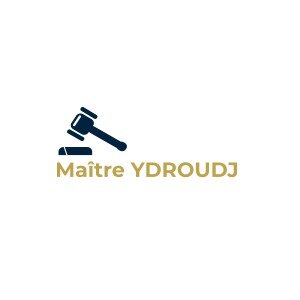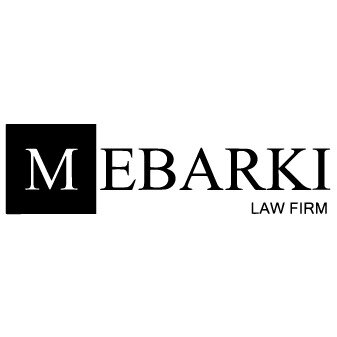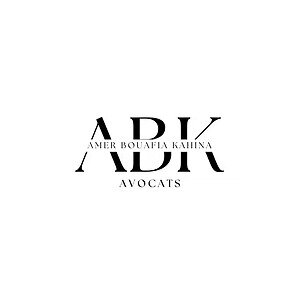Best Water Law Lawyers in Algiers
Share your needs with us, get contacted by law firms.
Free. Takes 2 min.
List of the best lawyers in Algiers, Algeria
About Water Law in Algiers, Algeria
Water Law in Algiers, Algeria, is governed by a set of legal principles and regulations that control the use, management, protection, and distribution of water resources. In Algeria, water is considered a public good and is primarily regulated through national legislation, such as the Water Code (Law 05-12 of 2005), which applies throughout the country, including the capital city of Algiers. Water laws address surface water, groundwater, lakes, and legal responsibilities in relation to water use, protection against pollution, and equitable distribution. Both governmental agencies and local authorities play central roles in enforcing and supervising water-related regulations to ensure sustainable management of this vital resource.
Why You May Need a Lawyer
There are several situations where individuals, businesses, or organizations in Algiers might need legal assistance regarding Water Law. Common scenarios include:
- Disputes over water rights or access to public or private water sources
- Conflicts between neighbors or communities about allocation or diversion of water
- Obtaining necessary permits for drilling wells, irrigation, or commercial water use
- Issues involving pollution or contamination of water sources by industrial or agricultural activity
- Liability for flooding or water damage resulting from construction or infrastructure projects
- Compliance with environmental regulations related to water use, discharge, or conservation
- Engagement with governmental agencies regarding water management plans
Water Law issues often involve complex technical, environmental, and administrative aspects, making qualified legal advice essential for protecting rights and interests.
Local Laws Overview
The main legal framework for water management in Algiers is the Water Code (Law 05-12), which establishes key principles:
- Ownership and Management: Water resources are owned by the state and considered part of the national heritage. The government manages and allocates water through various agencies.
- Permits and Authorizations: All significant use or exploitation of water resources requires proper authorization or a concession delivered by local or national authorities.
- Water Use Types: Distinctions are made between domestic, agricultural, industrial, and public uses, each with different levels of regulation and oversight.
- Protection Against Pollution: Strict regulations prohibit the unauthorized discharge of pollutants into water sources, with penalties for infractions.
- Groundwater and Well Drilling: Drilling wells or extracting groundwater is regulated to prevent overuse and requires prior approval.
- Public Health and Safety: Provisions address the safety of drinking water, sanitation, and measures to protect the population from water-borne risks.
- Conflict Resolution: Disputes over water use or allocation are often resolved through administrative channels but may require legal intervention or court action.
Local authorities in Algiers may have additional regulations or guidelines tailored to urban water management, flood control, and wastewater treatment, complementing national laws.
Frequently Asked Questions
What is considered a water right in Algiers?
A water right is the legal entitlement to use a certain quantity of water from a source for a specific purpose. In Algeria, water rights are granted by governmental authorities and can be individual, communal, or organizational.
Can private persons own water sources in Algiers?
No, all water resources, whether surface or underground, are public property managed by the state. However, individuals may receive permits or concessions to use water for approved purposes.
How do I obtain permission to drill a well?
You must submit a formal application to the relevant local or regional authority, providing technical documentation about the proposed site and intended use. Approval is subject to environmental assessment and availability of water.
Are there restrictions on how much water I can use?
Yes, water use is regulated to ensure sustainable management. Permits specify allowable quantities, and exceeding these limits can result in fines or revocation of the permit.
What should I do if my water source is polluted?
Report the incident immediately to local authorities or the environmental agency. If the pollution is severe or caused by a third party, you may seek legal recourse to stop the pollution and claim damages.
Is water from all public sources drinkable in Algiers?
Not all public water sources are safe for drinking. Only water supplied by approved municipal systems is guaranteed to meet potable water standards. Always consult local health advisories before using other sources.
Can I divert water from a stream or river for private use?
Diverting water from public sources requires explicit authorization. Unauthorized diversion can attract legal penalties and must be avoided.
Who is responsible for water infrastructure maintenance?
Maintenance of public water infrastructure is generally the responsibility of municipal or governmental agencies. Private infrastructure, such as onsite wells or cisterns, must be maintained by their owners.
What penalties exist for violating water laws?
Penalties for breaching Water Law can include administrative fines, cessation of activity, cancellation of permits, or even criminal prosecution in severe cases, such as intentional pollution.
How are disputes over water resolved?
Disputes are often addressed initially through administrative procedures. If unresolved, parties may initiate legal proceedings in civil or administrative courts, sometimes after mandatory mediation.
Additional Resources
For further support or information, consider contacting the following resources:
- Agence Nationale des Ressources Hydrauliques (ANRH) - National Agency for Water Resources overseeing planning and management
- Direction des Ressources en Eau de la Wilaya d’Alger - Local water authority managing permits, inspections, and infrastructure in Algiers
- Ministry of Water Resources and Security - Central government body for policy and regulation
- Environmental Protection Associations - NGOs and citizen groups advocating for clean water and environment
- Legal aid clinics or associations - Organizations offering legal advice on environmental and water law issues
Next Steps
If you need legal assistance related to Water Law in Algiers, Algeria, consider these steps:
- Gather all relevant documents, including permits, notices, and correspondence with authorities
- Identify the nature of your issue: permit application, dispute, pollution, or other concern
- Contact the appropriate governmental agency or local authority for initial clarification
- Consult a qualified lawyer specializing in Water Law or administrative law for tailored advice
- If your issue involves health or safety risks, alert local health and emergency authorities immediately
- Stay informed about your rights and obligations under Algerian Water Law to prevent future issues
Acting promptly and seeking expert guidance can help protect your interests and ensure compliance with local laws governing water use in Algiers.
Lawzana helps you find the best lawyers and law firms in Algiers through a curated and pre-screened list of qualified legal professionals. Our platform offers rankings and detailed profiles of attorneys and law firms, allowing you to compare based on practice areas, including Water Law, experience, and client feedback.
Each profile includes a description of the firm's areas of practice, client reviews, team members and partners, year of establishment, spoken languages, office locations, contact information, social media presence, and any published articles or resources. Most firms on our platform speak English and are experienced in both local and international legal matters.
Get a quote from top-rated law firms in Algiers, Algeria — quickly, securely, and without unnecessary hassle.
Disclaimer:
The information provided on this page is for general informational purposes only and does not constitute legal advice. While we strive to ensure the accuracy and relevance of the content, legal information may change over time, and interpretations of the law can vary. You should always consult with a qualified legal professional for advice specific to your situation.
We disclaim all liability for actions taken or not taken based on the content of this page. If you believe any information is incorrect or outdated, please contact us, and we will review and update it where appropriate.











